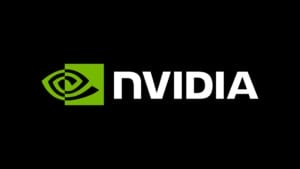Martech stacks need a new center of gravity
Customers become more and more demanding every day. They want unique products, flawless customer experience, excellent customer support, emotional connection with a brand, and many other things that...

Customers become more and more demanding every day. They want unique products, flawless customer experience, excellent customer support, emotional connection with a brand, and many other things that might appear as small but will influence their decision. It is hard for a company to cover all of those requirements without getting lost in the efforts and different strategies they will try out. Especially if you are not using the right tools. This is why the use of martech continues to increase, new tools are coming into play, and existing ones are constantly being improved. At some point, you might end up with a big portfolio of martech tools you have at your disposal, but without the right strategy on how to use them, you will again get lost and not take full advantage of any of them. This is why your martech stack needs a gravity center, which right now should be social media. In recent years we see how social media platforms have gained more and more popularity as marketing platforms where businesses can attract potential customers and interact with existing ones. This is why many companies will have to change their perception of social media and adapt their strategies by incorporating more and more of this type of marketing into it. To achieve that, you might need some new tools that are highly focused on this sector. Let’s see why the new center of gravity of your martech stack should be social media.
Table Of Content
Connect with your customers easier and faster
Almost every person who would usually interact with your brand has at least one social media account and follows their favorite brands. Whether it is Facebook, Instagram, Twitter, or any other, this allows brands to better communicate with customers. Before social media took such a big portion of the market, people had to go through customer support to communicate with the brands they use. In some cases, this was a tedious and very slow process. But now, many brands offer chat support over social media or other ways to be contacted easier and provide answers much faster. Imagine that you are a SaaS company. We all know that outages happen, and the support tickets start raining when there is such a situation. However, if you have a social media account, you can post that there is an ongoing problem that you are looking into. You can keep them posted in real-time, and in this way, you will decrease the number of tickets you will have to handle. This can be done with different integrations between monitoring tools that can post updates on your Facebook page, for example.

Another popular use case is advertisement done through social media because you can share offers with a larger public in real-time. With the help of many tools, you can create automation that starts running at the right time and be shown to the right audience. For example, around Black Friday, you can show different products to people based on their interests and previous purchasing history. You can also monitor your paid campaigns in real-time and optimize them whenever needed, e.g., if a product runs out of stock or one of your links is broken. Social media gives you many possibilities to interact with your clients, and many martech tools will facilitate this by making it effortless to manage your posting and analyze your data faster.
Social commerce is rising
Social media is giving you the possibility to have one more sales channel. Not only with the integrated shops on some of the platforms like Facebook and Instagram, but you have the means to discover new prospects and contact them more personally. We receive many emails daily, but we are actively opening just a few. But when it comes to social media, we are all checking our messages and notifications. And if you follow a particular page, you will receive notifications about the new products they add to their social media store or when the ones you already bought are on discount. There are also many great integrations with eCommerce tools to promote your products on your social media page, and with a couple of clicks, your clients can already be in the checkout phase.
You can provide better customer support and increase loyalty
As we mentioned communicating with customers is much easier through social media. So encouraging them to use those platforms to communicate with you and your customer support will be a certain win. With chat support on your site, customers will still have to remain on your site, and it is a bit harder to use when you are on the move. But with chats like Facebook Messenger, Instagram, or even Viber, people can talk to you about their issues no matter where they are and receive notifications when they get an answer right away. You will see that this will turn out to be the preferred way for people to contact you, but you need to make sure you can support that. Again with the help of the right martech tool, you can integrate your social media accounts and your support system. Like that, your support agents will still work on a known platform, but your customers will receive the answer on their social media accounts.
Providing better support always helps tremendously with customer loyalty. And for every brand, a loyal customer is worth a lot more than a new one-time customer. Of course, attracting new customers should be a never-ending cycle, but you should also focus on keeping your existing ones because no business can survive without returning loyal clients. Once you build a stronger connection with someone, they will be more willing to return to you than go to another similar company and get their products. Customer loyalty also helps with some free advertisements. What we mean by that is that people that are happy with your products and services will be more willing to recommend them to others, and in a way, this is a free advertisement. This can also be done by people sharing your posts on social, and you can use different martech tools to track this and how much this will increase your reach.















